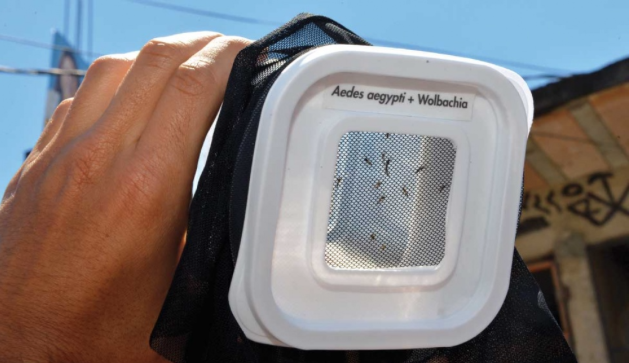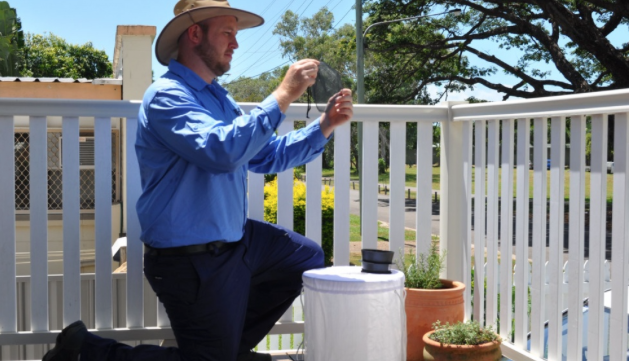Can you hear the buzz across the Douglas Shire?
DENGUE TRIAL

THERE is a buzz across the Douglas Shire as the Australian-led Eliminate Dengue Program begins work in the region.
The researchers will be releasing mosquitoes that carry Wolbachia - natural bacteria that reduce the ability of Aedes aegypti mosquitoes (dengue mosquitoes) to pass dengue and other similar diseases, like Zika virus, between people.
Locals can expect to see the team from Melbourne’s Monash University working in Douglas Shire’s high- risk dengue areas in Port Douglas, Mossman, North Mossman, Mossman Gorge and Cooya Beach.
Dr Tim Hurst, the program’s Field Trial Manager for Douglas Shire, said the region is set to benefit from years of field trials in Cairns and Townsville as well as communities in Indonesia, Vietnam, Brazil and Colombia.
“Over many years, we have refined our method and shown it is sustainable, low-cost and safe for people, the environment and wildlife,” Dr Hurst said.
“We are hoping to successfully introduce Wolbachia into the shire’s mosquito population over the next few months, and, if successful, we expect to see a reduction in dengue transmission.”
“The Eliminate Dengue team has been speaking with local groups and individuals to raise awareness about the project and has received an overwhelming level of support.”
Member of the Douglas Shire Community Reference Group, Paul Hoye, is thrilled to see the community get behind the project.
“It’s amazing to see an Aussie science program with the potential to help so many people around the world,” Mr Hoye said.“As a community, we rely heavily on tourism as part of our livelihood. Dengue-proofing this area is important for own our health but also helps make sure that tourists feel safe coming here."
The Eliminate Dengue team will be releasing adult mosquitoes with Wolbachia from the nature strip once a week for approximately 10 - 12 weeks..
“We do not expect locals will notice much of an increase in mosquitoes numbers but we do remind everyone to continue to protect themselves against mosquito bites as per usual,” Dr Hurst said.
Wolbachia naturally occurs in up to 60% of all insect species and to date, there has been no significant local transmission of dengue in areas where Wolbachia is at high levels in the mosquito population.

This new approach is expanding globally, in an effort to reduce the estimated 390 million dengue infections that occur each year in over 100 countries.
Locals wanting to find out more can visit the Eliminate Dengue website or call 1800 005 622.
